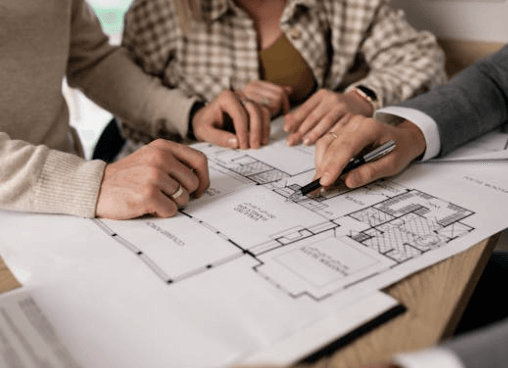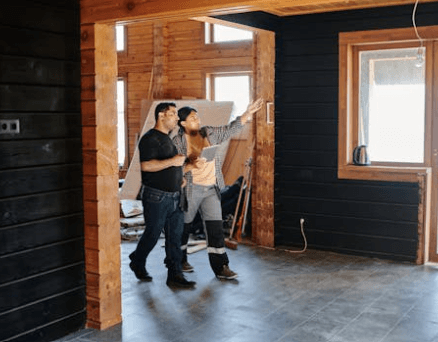Did you know that over 80% of new homeowners wish they had considered buying raw land instead of an existing home, according to recent real estate surveys? The freedom to build a house on raw land offers unlimited customization potential and can save you up to 40% compared to purchasing a move-in-ready property in today’s competitive market. However, the process can feel overwhelming for first-time builders who don’t know where to start or what pitfalls to avoid. Raw land development has grown by 25% over the past three years as more Americans seek affordable housing solutions and personalized living spaces. This complete guide will walk you through every essential step to successfully build a house on raw land, from choosing the perfect plot to moving into your custom-built dream home. Steve Daria and Joleigh are expert real estate investors and cash land buyers who have successfully guided hundreds of families through the process. Whether you’re looking to escape high housing costs or create a truly unique living space, understanding the land development process will save you time, money, and stress. Ready to turn your empty lot into the perfect family home? Book a free discussion with our experts today and discover how to make your raw land building dreams a reality with professional guidance every step of the way.
Key Points
- Research Zoning Laws and Building Permits: Before you buy any piece of raw land, check with your local planning department about zoning restrictions and building requirements. This step prevents costly surprises and ensures your dream home design is allowed on the property.
- Test Soil Conditions and Survey the Land: Hire a professional to conduct soil tests and property surveys to identify any foundation issues or boundary problems. Poor soil conditions can add thousands to your construction costs, so knowing this upfront helps you budget properly.
- Plan Utility Connections Early: Raw land typically lacks water, electricity, and sewage connections, which can cost $10,000 to $30,000 to install. Contact utility companies early in your planning process to understand connection fees and timeline requirements.
- Secure Construction Financing: Building loans differ from regular mortgages and typically require down payments of 20-30% with higher interest rates. Shop around with multiple lenders who specialize in construction financing to find the best terms for your project.
- Hire Experienced Contractors: Select contractors with a proven track record in raw land development, not just general home building. These experts know the challenges of site preparation, utility installation, and getting local permits.
What is raw land, and can you build a house on it?
Raw land is an empty property with no buildings, roads, or utilities, such as electricity and water.
Think of it as a blank canvas where nothing has been built yet.
Yes, you can absolutely build a house on raw land, but it requires more planning than buying a home that’s already there.
When you decide to build a house on raw land, you’ll need to check local rules to make sure homes are allowed in that area.

You’ll also need to bring in utilities such as power lines, water pipes, and sewer connections, which can incur additional costs.
The soil must be tested to make sure it can safely support a house foundation.
Getting building permits from the city or county is required before you start construction.
Many people love raw land because they can design their perfect home without any restrictions from existing structures.
The process takes longer and costs more upfront, but you gain complete control over your home’s location, size, and style, making it worthwhile for many families.
Get Started: Get Your Cash Offer Below…
We are direct land buyers. There are no commissions or fees and no obligation whatsoever. Start below by sharing where your property is and where we can send your offer…
How much does it cost to build a house on raw land?
The cost to build a house on raw land varies widely, but typically ranges from $200,000 to $500,000 or more, depending on your location and the size of your home.
When you build a house on raw land, you’ll face additional expenses that don’t exist with developed lots.
Site preparation costs range from $5,000 to $20,000 for clearing trees, leveling the ground, and creating access roads.
Utility connections are often the biggest surprise expense, ranging from $10,000 to $50,000 to bring electricity, water, and sewer lines to your property.
Building permits and inspections can add $2,000 to $10,000 to your total costs.
The actual house construction costs the same as any other location, typically $100 to $300 per square foot.
Soil testing and land surveys cost around $3,000 to $5,000, but are essential for foundation planning.
Rural areas can cost more because there are fewer contractors available, and delivering materials is more difficult.
While raw land construction costs more upfront than buying existing homes, you gain complete design freedom and often save money long-term through lower land purchase prices and customized energy-efficient features.
What permits do I need to build a house on raw land?
- Building Permit: This is the main permit that allows you to construct your house according to approved plans. You’ll need detailed blueprints and engineering drawings to obtain approval for this permit from your local building department.
- Septic System Permit: If your raw land isn’t connected to city sewer lines, you’ll need a septic permit for waste management. This permit requires soil testing to ensure your land can properly handle a septic system installation.
- Well Permit: Since most raw land lacks access to city water, you’ll need a well permit to drill for water. Local health departments issue these permits after testing your proposed well location and water quality.
- Electrical Permit: This permit covers all electrical work, including power line connections and indoor wiring systems. A licensed electrician must apply for this permit and complete all electrical inspections during construction.
- Driveway and Access Permit: You require permission to construct a driveway that connects your property to public roads. This permit ensures your driveway meets safety standards and doesn’t interfere with drainage or traffic flow.
How do I choose the right raw land for building?
Choosing the right raw land for building starts with checking local zoning laws to make sure you’re allowed to build homes in that area.
Look for land with good soil conditions that can support a foundation without expensive fixes or special engineering work.
Ensure the property has reasonable access to utilities, such as electricity, water, and sewer connections, as bringing these services to remote locations can cost tens of thousands of dollars.
Check the land’s drainage patterns during different seasons to avoid flooding problems that could damage your future home.
When you build a house on raw land, you’ll want a relatively flat or gently sloping site to reduce grading and foundation costs.
Consider the property’s proximity to schools, hospitals, and shopping centers for daily convenience.
Research any environmental restrictions, such as wetlands, floodplains, or protected wildlife areas, that may limit your building options.
Finally, hire a professional surveyor and soil engineer to inspect the land before purchasing, as their findings will reveal any hidden problems that could make construction difficult or expensive later.
How do I find reliable contractors for raw land construction?
- Ask for Raw Land Experience: Always choose contractors who have specific experience building on raw land, not just general home construction. Ask to see photos and references from previous raw land projects to verify their expertise with site preparation and utility connections.
- Check Licenses and Insurance: Verify that contractors hold current licenses for your state and local area through official government websites. Make sure they have liability insurance and workers’ compensation to cover any accidents or damages.
- Get Multiple Detailed Bids: Request written estimates from at least three different contractors that break down all costs, including permits, site work, and materials. Compare not just the total price but also the specific services included and timeline estimates for completion.
- Read Online Reviews and References: Check Google reviews, Better Business Bureau ratings, and ask for recent customer references you can contact directly. Focus on feedback regarding communication, staying on budget, and handling unexpected challenges that arise during construction.
- Visit Their Current Job Sites: Ask to see active construction sites to observe work quality, organization, and safety practices firsthand. This provides insight into how they manage projects and treat their employees and clients.

How do I secure financing for raw land construction?
Securing financing to build a house on raw land requires a different approach than getting a regular home mortgage.
Construction loans are your primary option, but they typically require 20-30% down payments and have higher interest rates than traditional mortgages.
Start by gathering detailed building plans, contractor estimates, and a realistic budget that includes site preparation and utility connections.
Most lenders require a full view of your finances, including credit score, income, and debts.
Select banks or credit unions that specialize in construction financing for better support with unique risks and needs.
These loans release funds in stages as construction milestones are met, instead of providing the full amount upfront.
Some lenders offer construction-to-permanent loans that automatically convert to regular mortgages once your home is finished, saving you from applying twice.
Keep in mind that you’ll need cash reserves for unexpected costs, as construction projects often run over budget.
Ready to start your financing journey? Contact a construction loan specialist today to discuss your specific project needs and get pre-approved before you start building.
**NOTICE: Please note that the content presented in this post is intended solely for informational and educational purposes. It should not be construed as legal or financial advice or relied upon as a replacement for consultation with a qualified attorney or CPA. For specific guidance on legal or financial matters, readers are encouraged to seek professional assistance from an attorney, CPA, or other appropriate professional regarding the subject matter.
